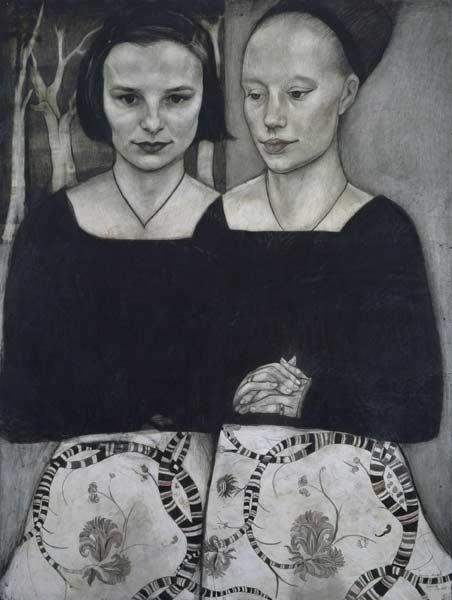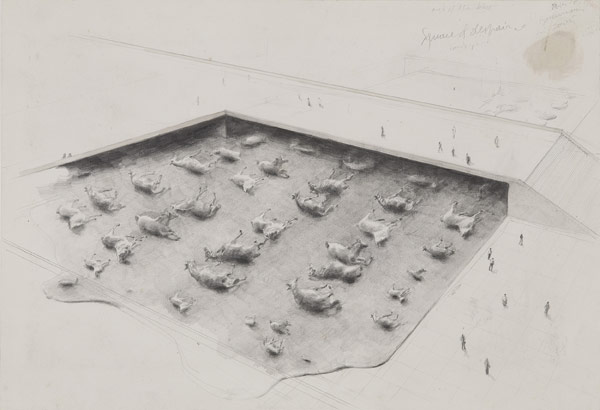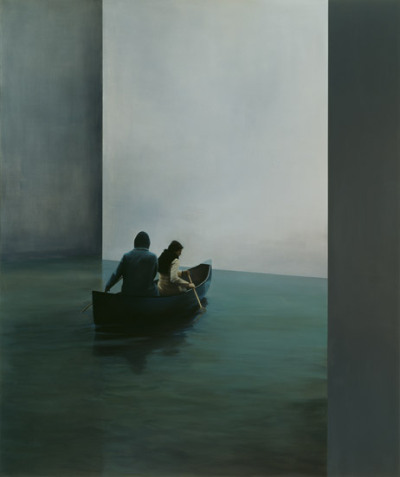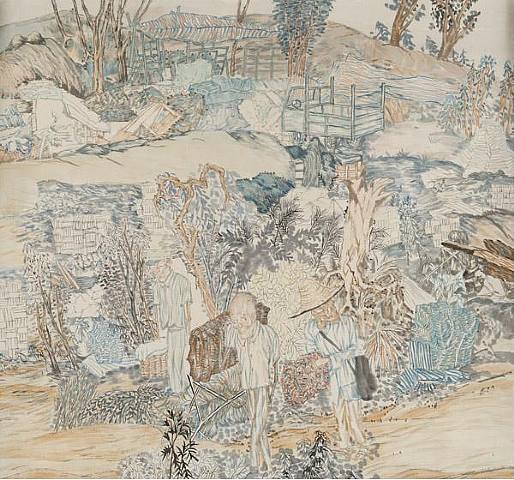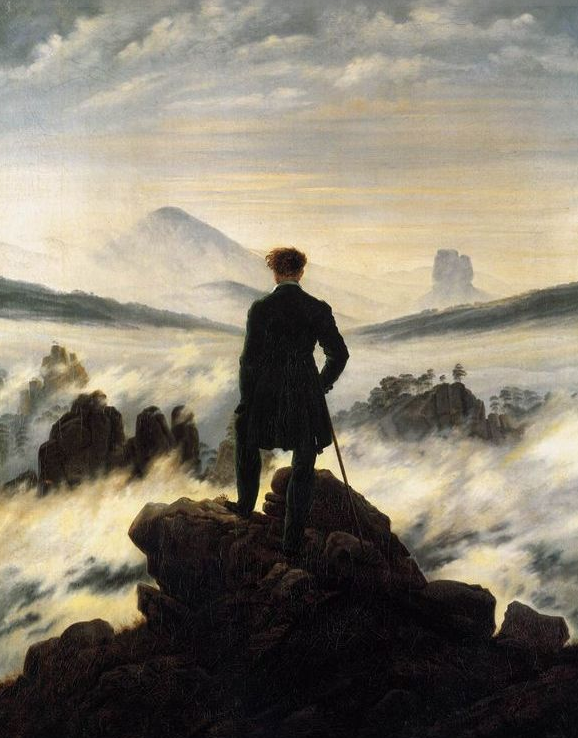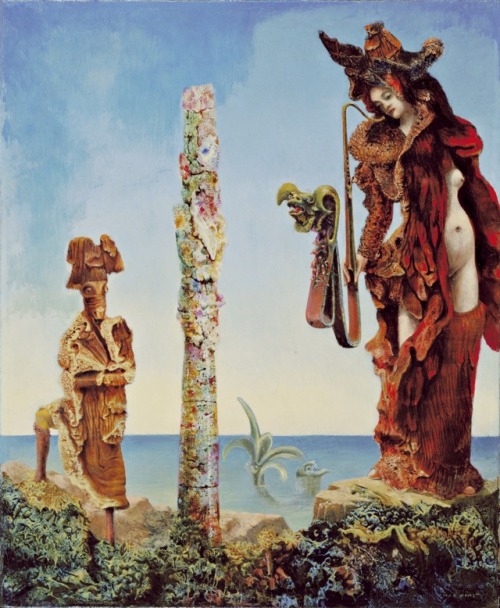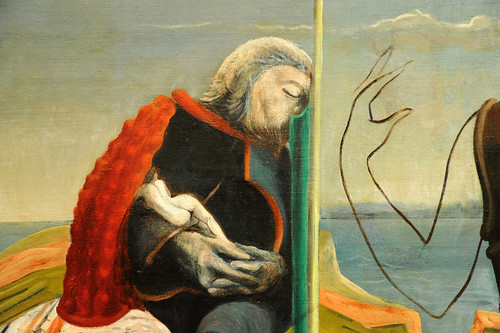The issue or question of art in respect to the formulations of GF is pretty apt. If one enters into the question, if one understand why art is thoroughly rejected, I think one will understand a great deal about the program and the goals of GF. First, to put on the table an interesting 'fact'. When confronted with various artistic works David's reaction was to refer to his cheap computer table, his writing desk, a cup of coffee, etc., and to say that this little still life held more for him than those artistic works which were to him dead and contrived. The sky, a plain, a mountain, the ocean, the stars---these are part of the fabric of reality that surrounds us and there is (obviously) no way that a mere work of art (painting, photograph, poem, novel, etc.) could compete. I have discovered that, to understand how numerous of the Gfers operate, you have to enter into their mental world, into the mechanics of their thinking, into what it is composed of, into the way that it is conducted, what is included and (very importantly) what is excluded. It might sound good, on the surface, to say 'I am only focused on One Thing and that One Thing is' [fill in the blank if you understand it] [Self-realization, realization of the Infinite, an experience of Self in the more yogic or Taoist sense or in Zen], but on closer examination one discovers that something is missing, some part of this desire and the 'realization' is flawed.
In the first place, each of those works of art represents and encapsulates extraordinary work on the part of the artist. A poem or a novel, for example, might express or reflect years and years of sweat, self-plunging, processes of discovery, great work on oneself, psychological and spiritual work. In the best cases such work is carried out in relation to and in response to all the great existential questions, in relation to the spiritual conceptions or philosophical issues of the day. Shakespeare as a poet and as someone who has plunged into the issues and problems of human life is an artist to be considered, thought about, felt, and not simply dismissed. Some say that the great poets are the ones who have opened up the human person, who have allowed for the expressions of what is human. In any case, the relation between art and spirituality, certainly in the West, is so intimate that they cannot be separated. Poets explore meaning and sense in very important ways, and they 'expand' that sense and those meanings.
- Before the message, the vision; before the sermon, the hymn; before the prose, the poem. The discursive categories of theology as well as the traditional images of sermon and prayer require a 'theopoetic'. ---Amos Niven Wilder
Now for the sad part. Along comes a few uneducated, rather brutishly uneducated and uneducatable Australians struggling with some deep personal issues. They have no qualifications in so many matters of sensitivity and are in fact interested exclusively in cutting themselves off from whatever alive stems and roots are (left) inside them. They declare that 'emotions' and feelings are, in essence, diabolical and traps for a 'wise' individual, and with that bold declaration also violently shear away from themselves their own link with 'the feminine' and the 'female', their own heart, their own emotions and also the possibility or the reality of 'love'. This act is derived from their bad reading of a few works of philosophy (Nietzsche, Kierkegaard and a few others) and from a hard core need or desire to do away with the issue or the problem of being human, that is to say with all that is difficult and dark and problematic in that. It is hard to find the words to describe what they do and why they do it because, at least as I see it, is is so bound up in unrecognized psychological issues. But anyway, they communicate the sense that a person can make some sort of leap over all human issues or concerns and attach themselves to a New Real or a Greater Real: Ultimate Reality, the Infinite, etc.
It might sound good on paper but there are myriads of problems associated with it. But going back to the question of those works of art. The fact is David simply cannot see them. It is like his radar system or his eyes simply and literally cannot discern certain spectrums of light and so the image cannot appear in front of him. But he calls this 'selectivity' of vision 'wisdom' and 'spirituality'. Yet, to understand those works of art one has to grasp the connection between spiritual and 'human' processes and our life in this 'real world', not an abstract world or an idealized world. Because, as I can see, each of those works of art is intimately involved in these questions, and there is no doubt that each of those artists is dealing with such issues and questions in their work. But all that, you see, for some Australian peasants with brute-like minds, is inconsiderable. 'All that' is simply wiped off the table. It would be comparable to an arrogant, strong-willed European peasant who tosses a fine violin into the fire, or burns the scores of Bach sonatas and declaims:
Well, these ain't really worth nothin' in the face of the present and my desire for heat! (Or something like that).
I am also convinced, but I really have no way to prove it, and can only suggest it, that the primary concern of David's 'spirituality' is essentially 'otherworldly', i.e. it does not have to do with this world but with an abstract world, an idealization. I am not incapable of seeing and understanding that a person may feel or does feel that they have found, inside themselves, an important and relevant source or well-spring. That idea or that fact is what feeds everything that has value and meaning in our world. But it is and perhaps should always be linked to, connected to, expressive of our whole selves: body, heart and mind. The best of the best in our own traditions, and the Christian traditions of the West deal on (essentially)
Love and Action. Within this 'concern' arises almost everything that 'we' (excluding our local brutes) value and everything that has moved and transformed our world, to the degree this is possible in an intractable world. But GF does away with all that. It wipes it all off the table with one stroke of the arm. It does away with the fact and the problem of having a human heart, of having a tangible life to live in a tangible world. Basically it simply does away with everything, and the question is What is left? What sort of personal world would one live in as a result of performing this 'spiritual' act?
Obviously, there are many more questions than answers.
In the Western (Christian) traditions, we have a notion of 'liturgy'. The word liturgy is from the Greek and means 'work of the people' (
leitourgia). The idea is obviously that of all manner of different activity as a call to action and as a response to and service of the Divine, and the divine ethical commands within the human world (Hebrew 'basar' and Greek 'sarz' refer to 'the flesh', the sphere of incarnation, with 'soma' as 'the body' and
the form of that life: our very selves). The implications are very far reaching but (once again, so agonizingly
again & again & again) our local dullards have no structure within their hollowed-out brains and souls for the merest glimmer of appreciation of what this might mean. The
meaning encapsulated in the notion of service to or response to the Divine is as wide-ranging as your own human imagination and heart can make it. And the farther we take it, the more we bring meaning and value into our lives. Moving away from it, I suggest, we crawl back into a death-realm.
The
widest implication of what this can mean is what interests me:
- 'For my people have committed two evils; they have forsaken me the fountain of living waters, and hewed them out cisterns, broken cisterns, that can hold no water'. Jeremiah 2:13
To propose some sort of 'realization' that is in fact the cutting off from one's own self, and a shrinking away from a full and living expression of self, is I suggest absurd and tragic.


